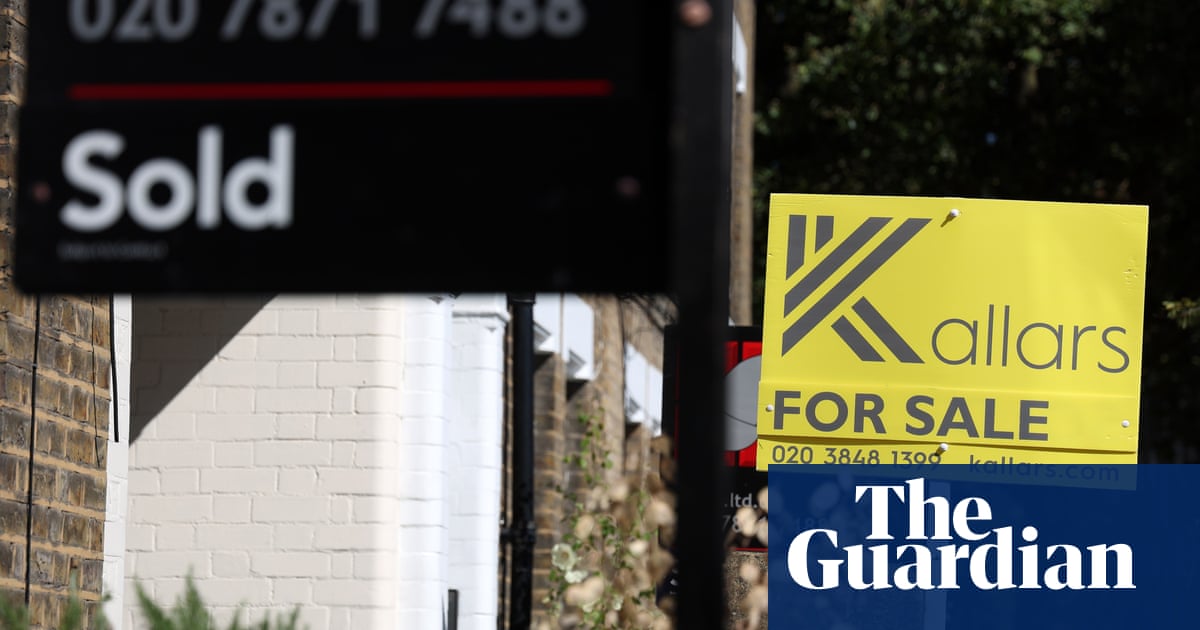
Almost 1,000 mortgage packages were pulled overnight from the British market as panic seeps into the housing market in the wake of Kwasi Kwarteng’s mini-budget.
Moneyfacts, which monitors the sector, said 935 out of 3,596 mortgage products had disappeared between Tuesday and Wednesday, double the previous record of 462 at the start of the pandemic lockdowns.
The sudden shift is threatening to stall the housing market, with borrowers saying they have been unable to secure loans or have had provisional offers withdrawn, while others are paying huge financial penalties to break their existing deals and in order to lock in fixed rates for longer.
From first-time mortgagees in shared ownership to people on house loans worth millions of pounds, there is a palpable sense of a personal finance timebomb, with markets predicting interest rates will almost triple from 2.25% to 6% next spring.
James Lindon-Travers of mortgage broker Lindon-Travers Associates in Surrey said he had a wealthy client willing to pay £95,000 in a penalty charge for breaking a fixed-rate deal.
“He has 21 months left of a five-year deal at 1.89% and unfortunately for him the early redemption charge is 5%. He is preparing to pay an early repayment charge of £95,000 in order to secure a new rate of 3.49% for seven years,” said the broker.
At the other end of the scale is Glen Robinson, who tried to remortgage his home to help finance the final stage of his divorce settlement. He had agreed a rate of £160 a month but that has now collapsed.
“I will now probably be forced into a distressed sale to raise the money by the courts,” he said. “I’m 68 years old and face near-certain fiscal ruin as a result of the chain of events unfolding.”
A 42-year-old software engineer househunting in Cambridge, who asked not to be named, said she had signed her application for a two-year fixed mortgage at 4.32% interest on Monday evening, less than 12 hours after she received the memorandum of sale for a two-bed property.
She spent Tuesday “panicking and refreshing Gmail” as she read articles about mortgages being pulled. “At 4pm I received an email asking for me to sign mortgage documents. One minute later, I received another email from my broker stating that she had just been informed my lender was pulling their rates tonight so if I wanted to secure my rate I had less than an hour to do so.”
If the deal falls through, she says she will be “100%” priced out of the market at current interest rates. “Everything is riding on this.”
New mortgagee Jeff, who pays £600 a month on a shared-ownership flat in London, said: “I’m already panicking, I’m wondering do I have to get a new job. My mum told me not to panic but you start thinking about all your costs, not just energy bills but the ground rent, bringing in packed lunches, having a shower at work instead of at home.”
Another young professional, Henry Langford, 31, said he chose shared ownership because it was the only way to afford a flat on his own in an area in London he wanted to live in.
“I’m really worried about it. Conservative policies probably protect people like me. I wouldn’t vote for them but this has turned into a major pitfall. Will I have to sell? Will I be able to sell, or do I cough up and try and weather the storm?” he said.
“I feel this is the first time the middle classes are going to be pushed on this,” he said in reference to the wider cost of living crisis. “This is a bit of a wake-up call.”
Karen Noye, a mortgage expert at the wealth management firm Quilter, said: “Lenders’ systems have been crashing with long virtual queues for borrowers and advisers trying to get them or their clients a deal at current rates.”
“It is absolutely mad out there. We are getting lenders withdrawing deals at short notice or no notice at all. Normally they would give 48 hours,” added Lindon-Travers.
He says it was important for consumers to remember that banks were not withdrawing “offers” but just deals in the shop window. Mortgagees can still lock in rates six months before the expiry of fixed deals and delay a decision on options until further down the line.
“It is not like the financial crash in 2008,” Lindon-Travers said. “Banks have money. Borrowing is still available and interest rates are still really really low. It’s just that millennials are in a whirlwind and are not used to seeing higher rates.”












